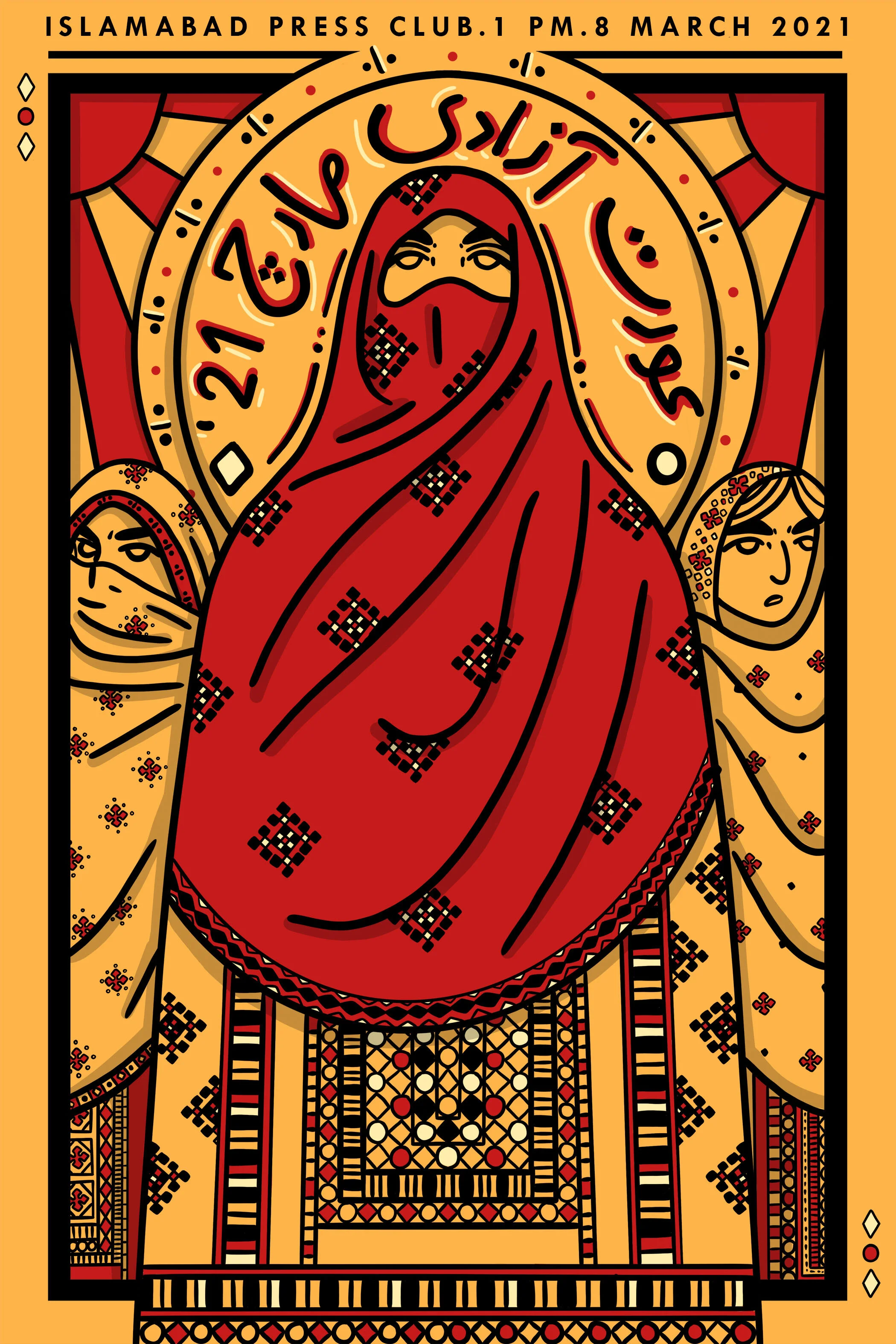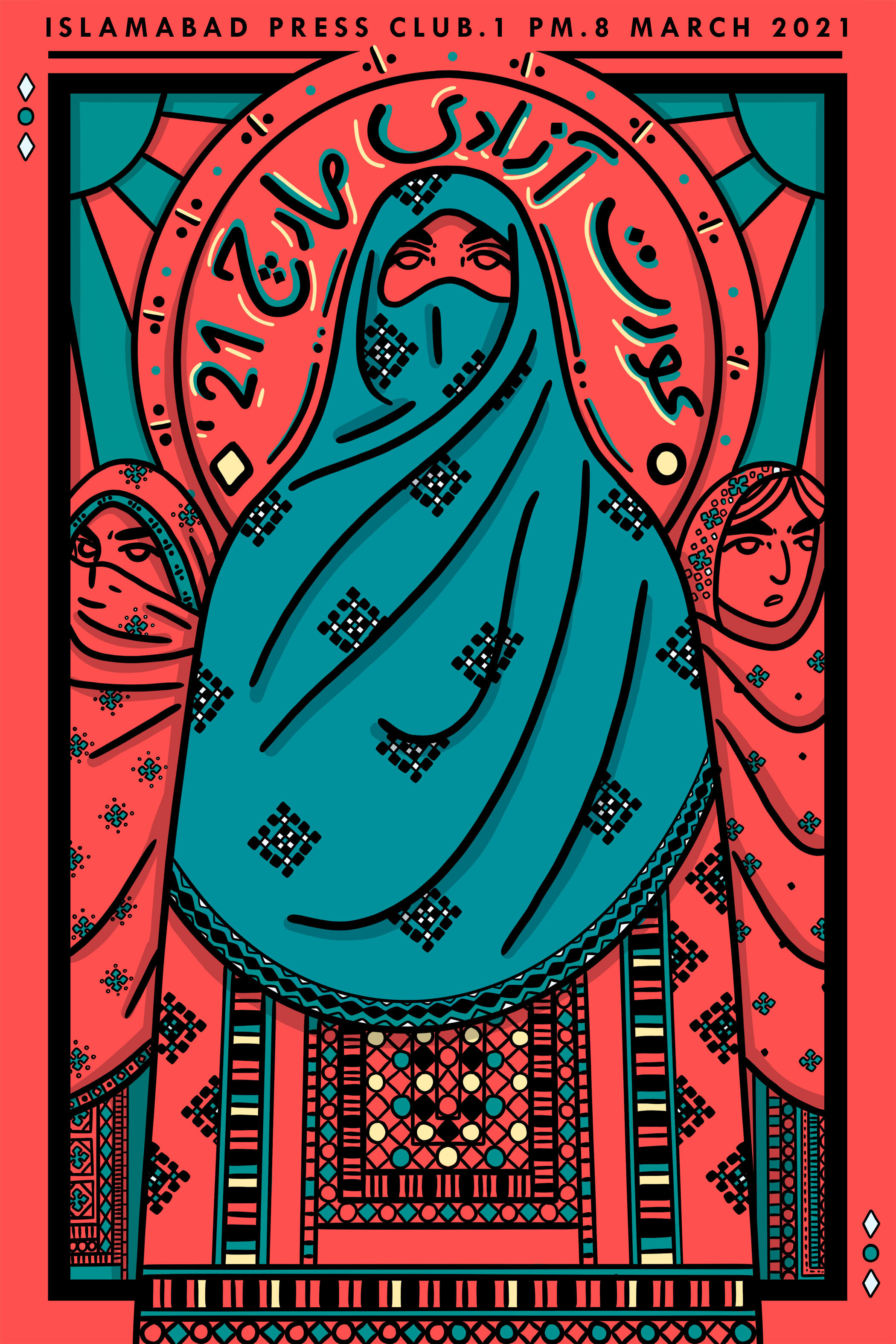These posters were made for the Aurat Azadi March (women’s freedom march) in Islamabad and other cities across Pakistan. They highlight the struggle of the women of Balochistan and their nonviolent movement against enforced disappearances and the injustices the people of Balochistan continue to face. The women on the posters are adorned in distinctly traditional Baloch patterns, paying homage to the resistance of Baloch women in the face of state repression.
The voices that make up the feminist struggle in Pakistan are diverse and many, and this year’s posters were a reminder of our connected experiences and concerns that stem directly from the political and socio-economic structures that surround us. They envision a joint struggle where no voice gets left behind- a sisterhood that is based on solidarity and connectedness, placing emphasis on the importance of acknowledging the breadth and diversity of our experiences to then collectively undo the many layers of inequality and oppression that impact our lives.

This visual (and its accompanying versions) was used across social media as one of the main Aurat Azadi March posters, along with artworks created by artists and volunteers who offered their services for the cause.
They were made available for free to download and print out, and pasted on walls and street corners all across Islamabad. On the day of the march these posters formed the main backdrop (shown below) for music and dance performances, and for the speeches made by organizers and activists.
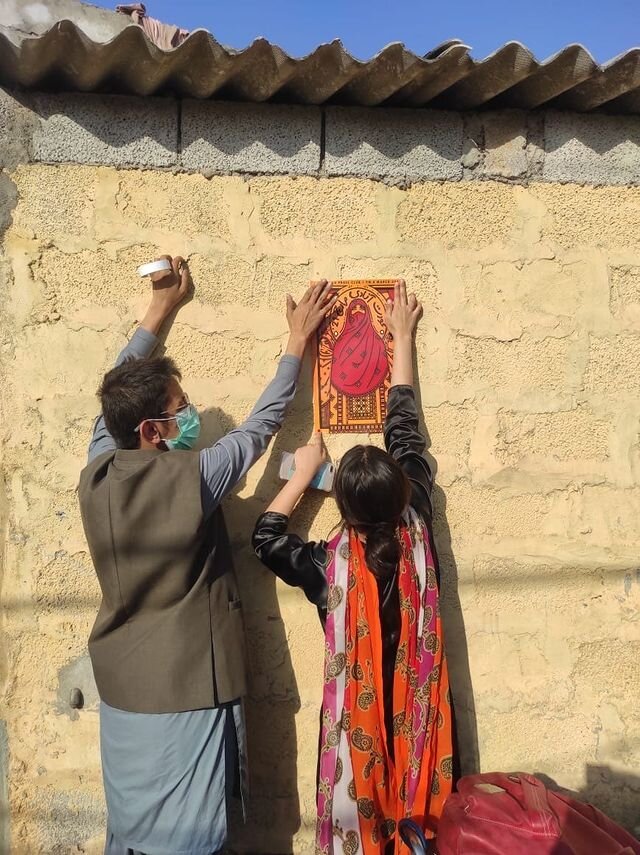
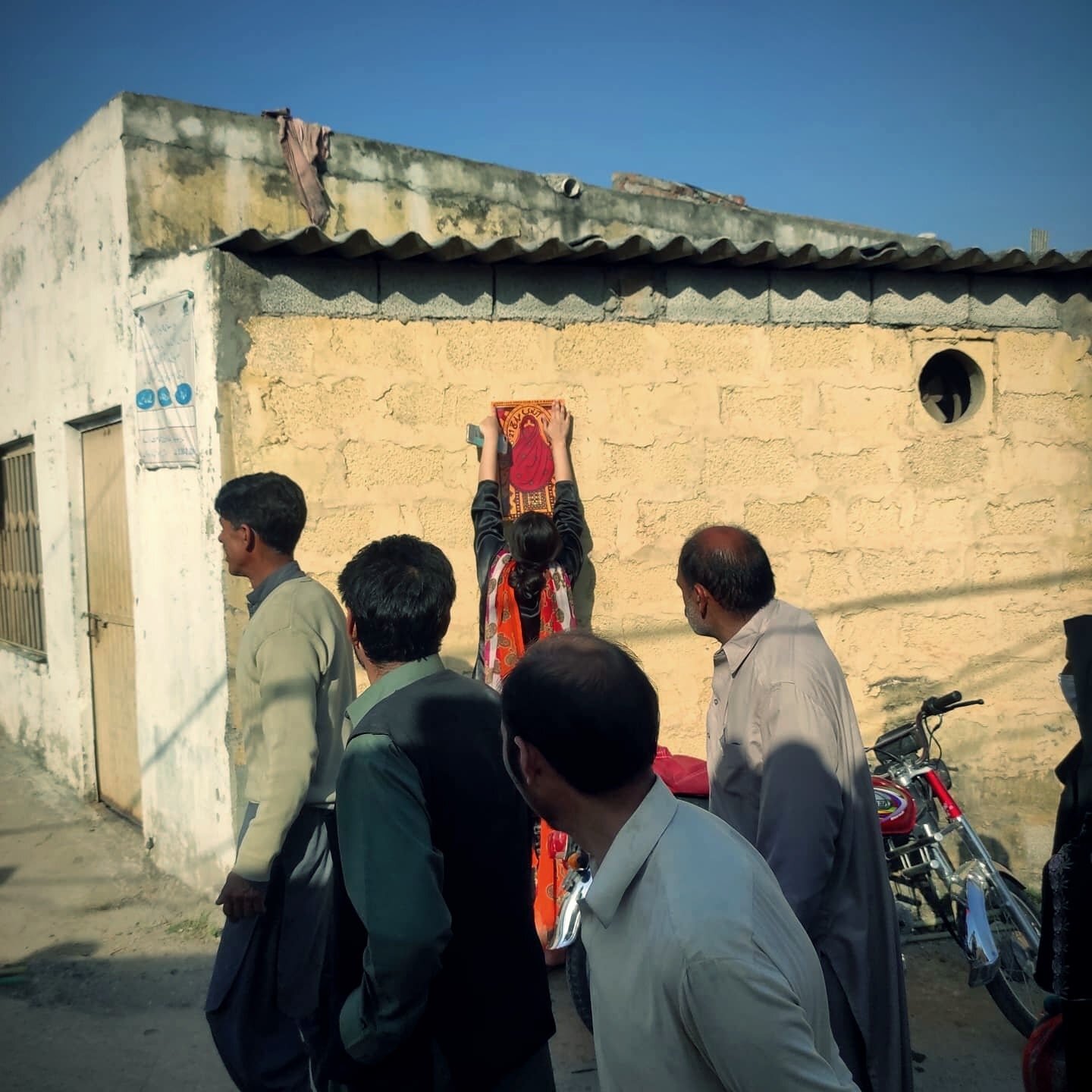

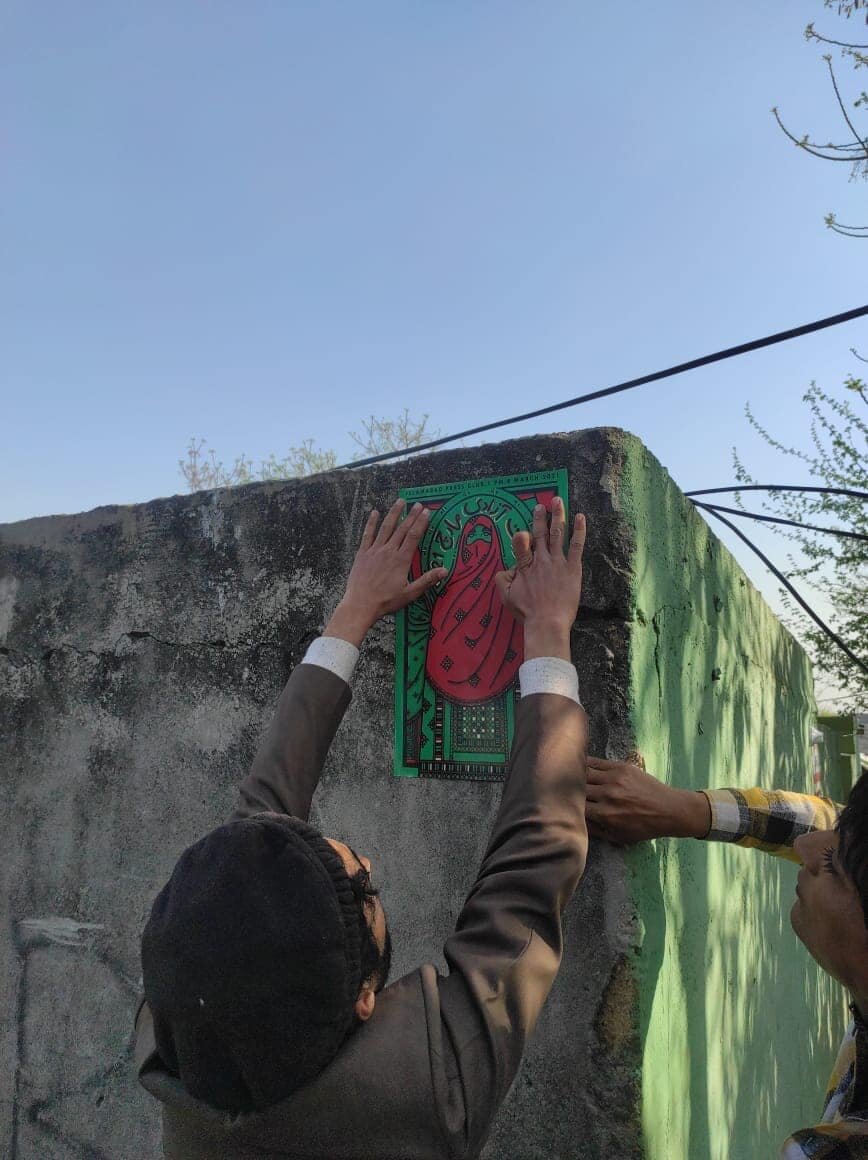



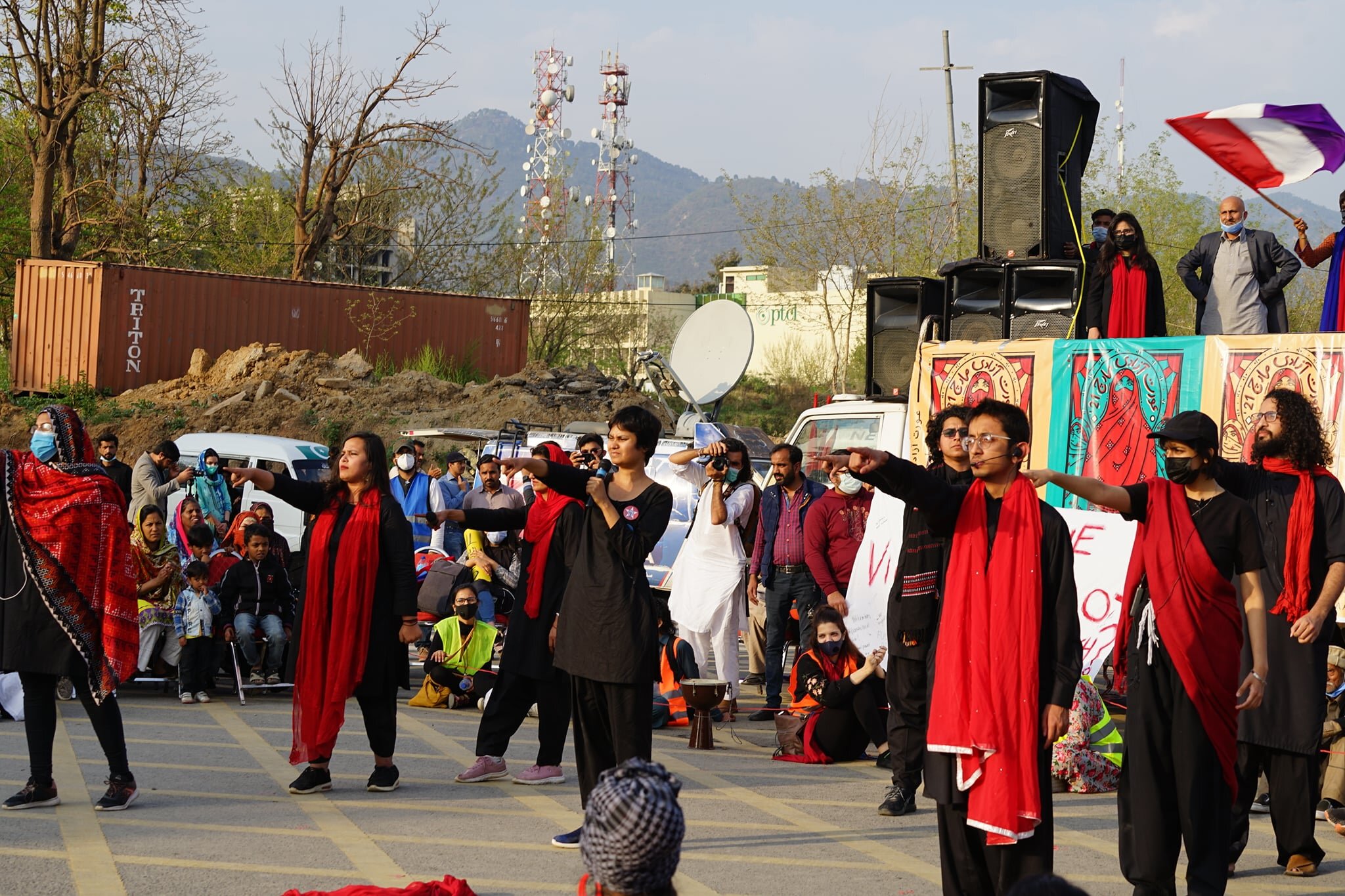
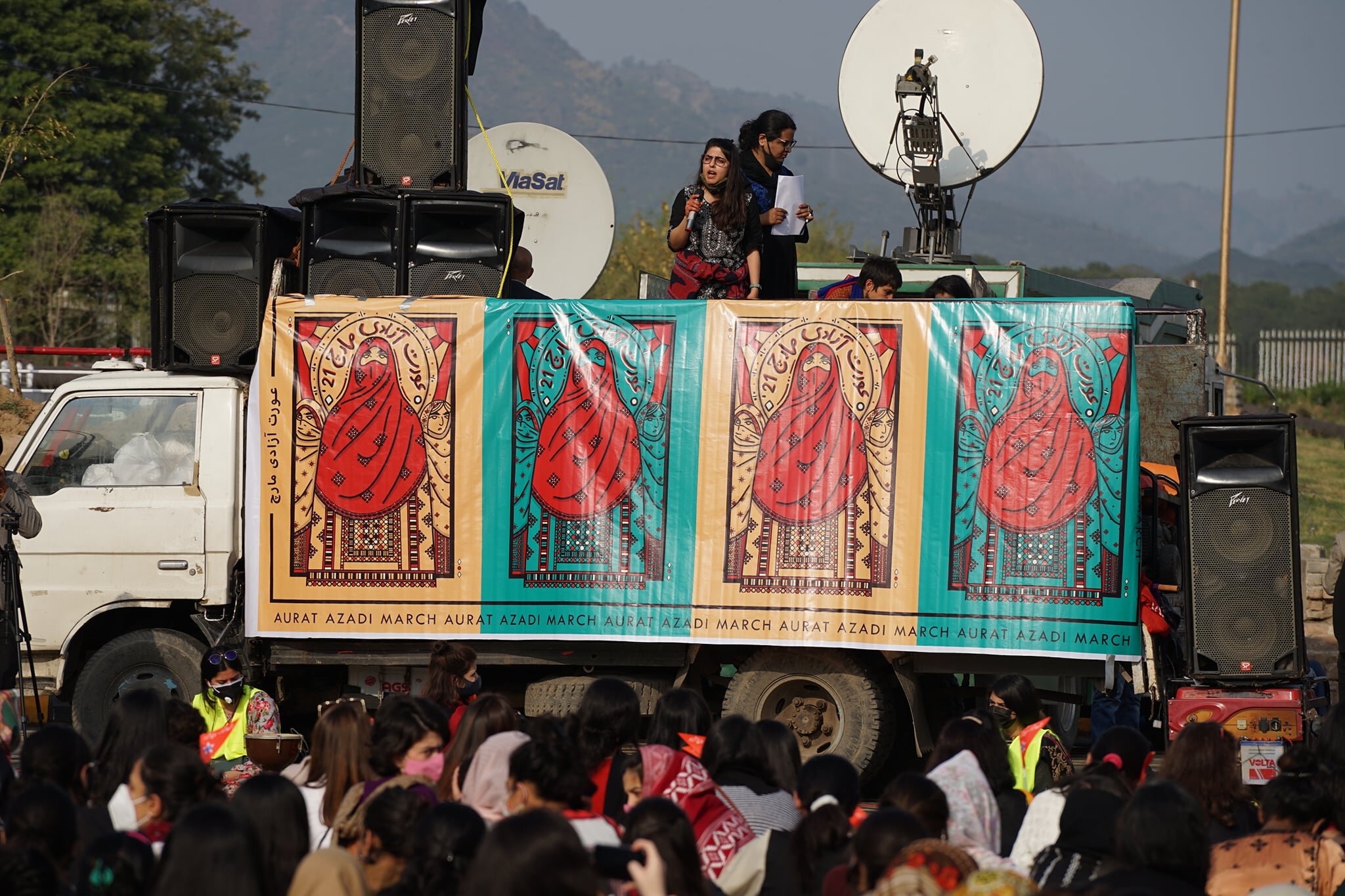
All photos were taken by the Aurat Azadi March volunteers and organizers in Islamabad, Pakistan.



